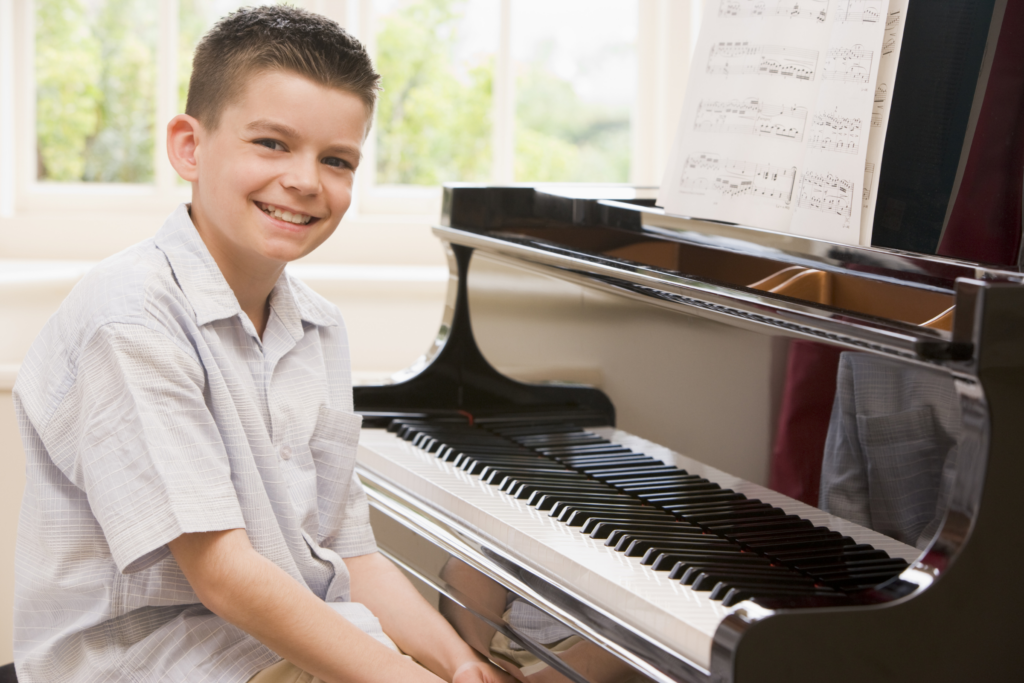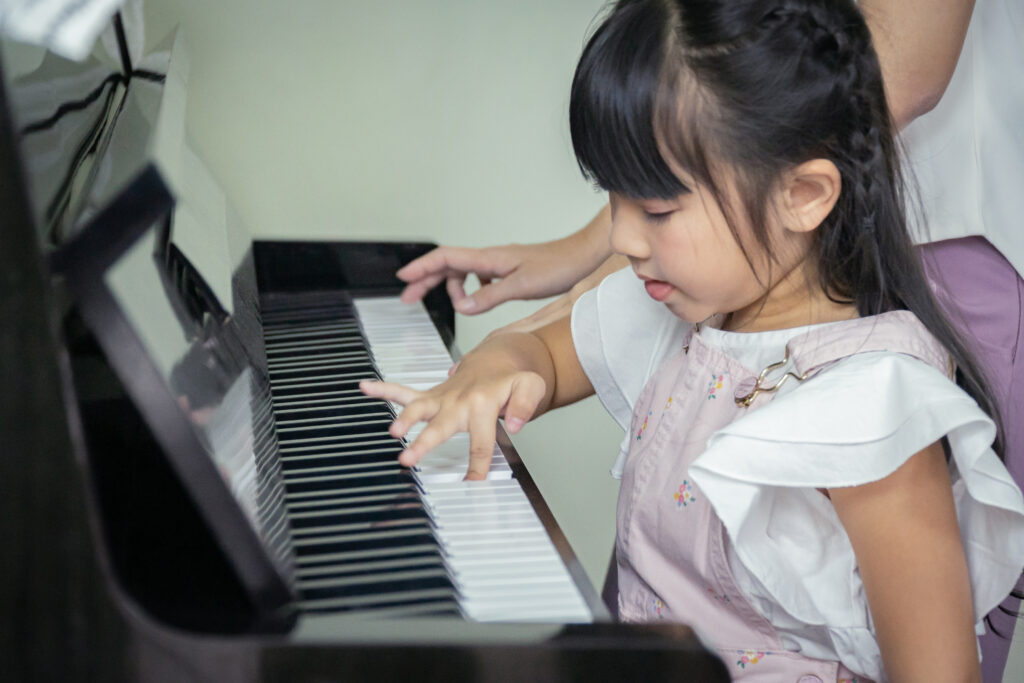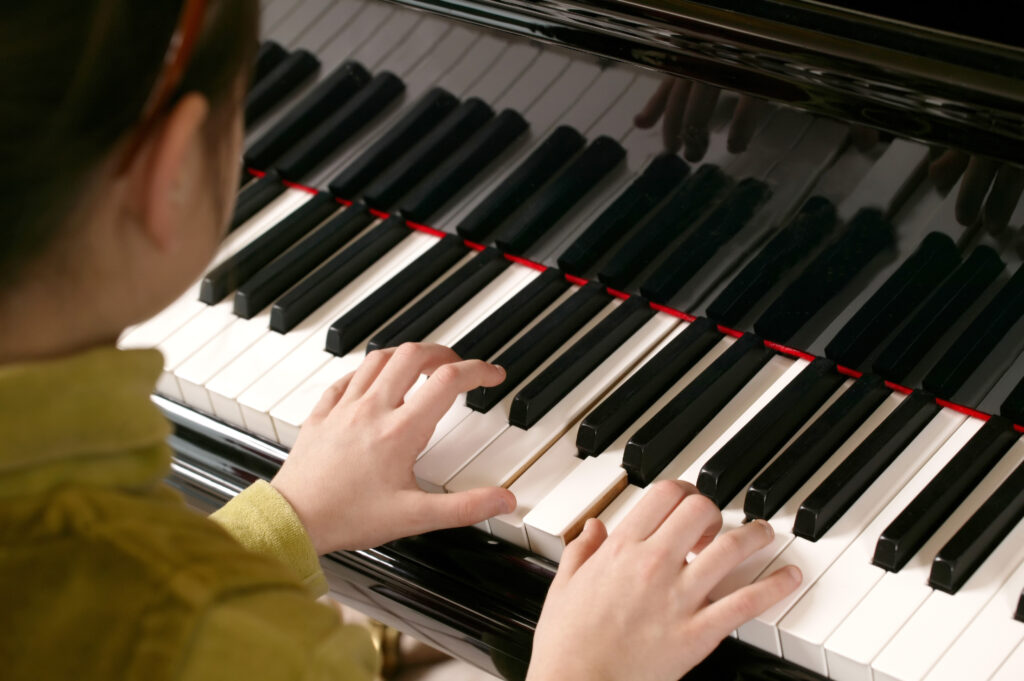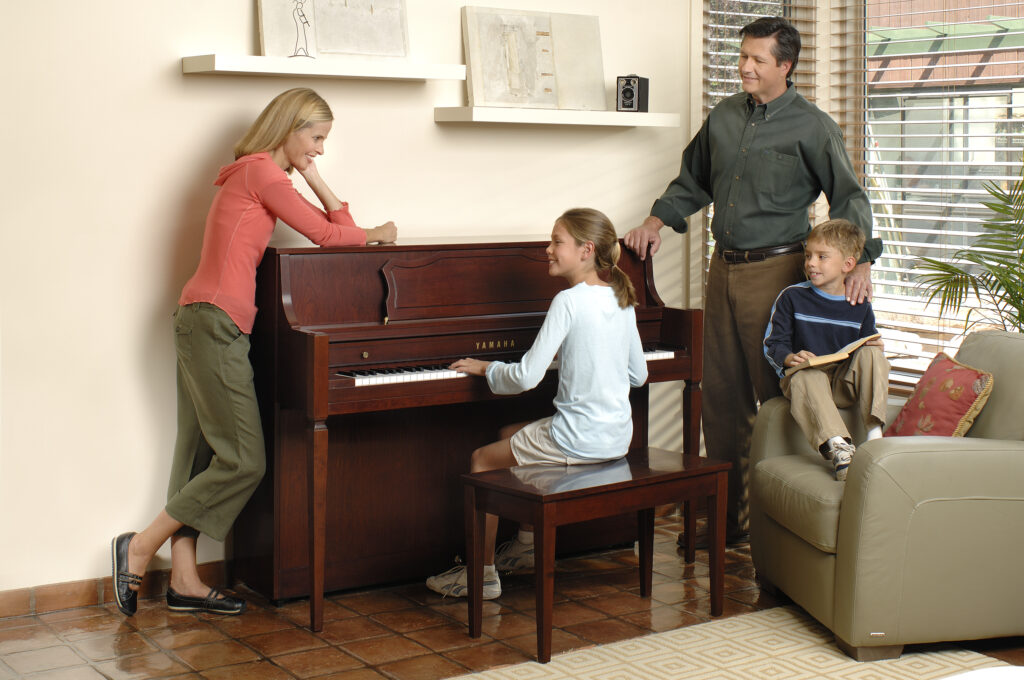We have created a list of the most commonly asked questions related to playing and owning a piano. If you don’t see the information that you need, please contact us so we can assist your needs






WHAT KIND OF PIANO INFORMATION SHOULD YOU LOOK FOR WHEN PURCHASING A QUALITY PIANO?
You should strongly consider the following three points. First, you want to be sure that quality materials were used in the construction of the piano. Second, you should get information on who actually manufactured the piano. Does this company have a high level of experience and expertise, does the factory meet worldwide standards for quality and craftsmanship. Third, you want to be sure you are purchasing your piano from a service oriented dealer.
WHY DO PEOPLE SAY THAT "MUSIC MAKES YOU SMARTER"?
A ten-year study tracking more than 25,000 students shows that music-making improves academic test scores. Regardless of socioeconomic background, music-making students got higher marks in standardized tests than those who had no music involvement.
HOW OFTEN SHOULD I HAVE MY PIANO TUNED?
Piano manufacturers recommend that NEW pianos should be tuned a minimum of three to four times the first year and a minimum of two times a year thereafter. Embracing a regular tuning schedule ensures that the qualified technician/tuner will spot any problems early and ensure that your piano always remains in top working condition.
SHOULD I CHOOSE AN ACOUSTIC PIANO OR A DIGITAL PIANO?
The traditional acoustic piano has been made for over 300 years. It is a stately and classic instrument that is also a fine piece of furniture. Furniture gives the acoustic piano an advantage over most digital pianos. Digital pianos on the other hand have their advantages too. They require almost no maintenance; they never need tuning and can be played with headphones. One thing is clear, today’s Yamaha digital and hybrid pianos are excellent instruments that can simulate the feel and sound of an acoustic piano well enough that major universities use them in piano labs and in practice rooms.